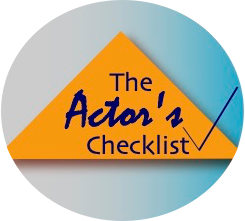Legal Help
Navigating contracts is a crucial skill for performers. Agents typically handle negotiations and payment arrangements, but without an agent, it’s up to you. If offered a contract, review it thoroughly or consult a lawyer. For major opportunities without a contract, politely request one to establish clear expectations. Alternatively, draft a simple agreement outlining terms and have all parties sign it.
Organizations like Volunteer Lawyers for the Arts (VLA) offer free or low-cost legal aid to qualified individuals. They also provide workshops on contract negotiation, copyright issues, and more. Contact their New York Art Law Line at (212) 319-2787 Ext. 1 for assistance.
Financial Management
Effective money management is vital. Use budgeting software to track income and expenses, helping you allocate funds for career development, such as headshots, classes, or travel for auditions.
Actors who join unions can access resources like the Actors Federal Credit Union, which understands the unique financial needs of performers, offering favorable savings and loan terms.
Taxes for Performers
Paying taxes as an artist can be complex. Unlike regular jobs, taxes are not automatically deducted from your income. To avoid surprises, set aside funds or make quarterly tax payments. Many acting-related expenses are deductible, including:
- Travel for auditions
- Acting classes and workshops
- Headshots and resumes
- Union dues
- Professional makeup, costumes, and dry cleaning
- Subscriptions to industry-related media
- Keep detailed records and consult a tax professional to ensure compliance and maximize deductions.
Bottom Line
Treat your acting career like a business. Invest wisely, stay organized, and seek expert advice when needed to build a sustainable path to success.
CHECK LIST OF THINGS TO KNOW ABOUT BUSINESS AND LEGAL MATTERS |
- Business affairs can become complicated when the actor is working on remote location. When you have landed that role on a series or a film that takes you on location for months, it might be time to look for a business manager.
- Legal Aid
- When you start filing your income taxes as a full or part time actor, seek an Entertainment Accountant. They will be aware of all current and allowable deductions.
- Copyright and Infringement Information.
- Seek out an entertainment attorney to take care of the vague and various details of an entertainment contract that requires the specific knowledge of a specialist.
- Hiring a Manager.
- Keep business cards on your person. They are an important networking tool.
TERMS TO KNOW |
Administration. The supervision of all financial, copyright and contractual aspects of either an entire catalog or a particular song.
Angel. The financial backer of a play.
Assignment. The transfer of rights to a song or catalog from one copy-right proprietor to another.
Clearance. The right of a radio station to play a song.
Clearance Agency. Same function of a performance rights organization, such as ASCAP, BMI, SESAC.
Common-Law Copyright. Natural protection of a song based on common laws of the various states. Was superseded by a single national system effective January 1, 1978.
Co-Publishing. The joint publication of one copy righted work by two publishers.
Copyright. As a noun, means the exclusive rights granted to authors and composers for protection of their works; a song or musical composition; as a verb, to secure protection for a song by filling the proper registration forms with the Copyright Office.
Copyright Infringement. Stealing or using somebody else’s copyrighted song.
Copyright Notice. Notice comprised of three elements:
- The symbol of copyright, the word “copyright,” or the abbreviation “Copr.”
- The year the song has been registered for copyright or the year of first production of the work.
- The copyright owner’s name.
Copyright Office. Federal government department, one of whose main purposes is to file and supply information regarding copyrights.
Copyright Royalty Tribunal. A committee created by Public Law 94-553 to determine adjustments starting January 1, 1978, of royalty rates with respect to compulsory licenses for educational television, cable television, jukeboxes, and sound recordings.
Impresario. An entertainment entrepreneur.
Ink. To sign a contract.
License. As a noun, it means a legal permit; as a verb, it is to authorize by legal permit.
Pitching. The action a producer takes in trying to convince a studio to invest money in a project based on a concept or a script.
Scale. Minimum SAG daily wage for principal actors.
Syndication. A popular television show is sold to be broadcast in a local or regional market.
Relevant Media and Performing Artists Business Associations
ArtsMarketing.orgc/o Arts & Business Council Inc.
520 Eighth Avenue
3rd Floor, Suite 319
New York, NY 10018
Phone: 212-279-5910
Fax 212-279-5915
A comprehensive web portal that organizes practical marketing information in a format that is easily accessible to novice, intermediate and expert marketers alike.
Email:
http://www.artsmarketing.org
Association for Independent Music
925 W. Baseline Road #105
Tempe, AZ 85283
Phone: 480-831-2954
Fax: 480-831-2955
A professional trade organization supporting the independent music industry by providing business opportunities for its members through an annual convention, ongoing information services, educational resource materials and advocacy.
Email:
http://www.afim.org
Copyright Society of the USA (CSUSA)
352 Seventh Avenue, Suite 307
New York, NY 10001
Phone: 212-354-6401
Organization that focuses on the gathering, dissemination and interchange of information concerning intellectual property rights.
Email:
http://www.copyright-society.org
Hollywood Radio and Television Society
13701 Riverside Drive, Ste 205
Sherman Oaks CA 91423
Phone: 818-789-1182
Fax: 818-789-1210
A mentoring organization of West Coast executives from the networks, stations, studios, producers, advertisers, ad agencies, cable companies, media companies, legal firms, publicity agencies, talent and management agencies, performers, services, suppliers and allied fields. Regarded for its HRTS Newsmaker Luncheons and the annual Holiday Party in December.
Email:
Web site: www.hrts-iba.org
Media Communications Association-International (MCA-I)
9202 N. Meridian Street, Suite 200
Indianapolis, IN 46260-1810
Phone: 317-816-6269
Fax: 800-801-8926
Professionals who work in video, film, distance learning, Internet, and other forms of interactive visual communications and associated crafts that are adapted to the communication needs of businesses, non-profit organizations, government and education.
Email:
http://www.mca-i.org
